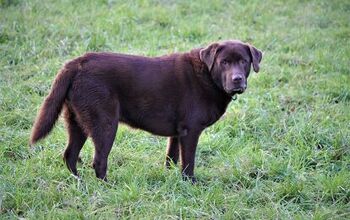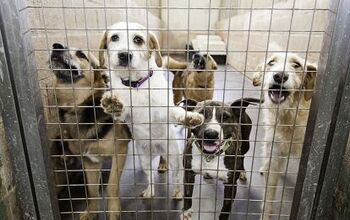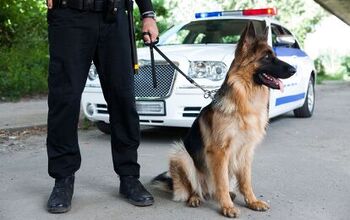New Study Shows Which Dog Breeds Are Most Likely to Get Cancer

When it comes to humans, early detection is key when dealing with different types of cancer, and the same is true for canines. Naturally, a healthy diet, daily exercise, and regular veterinary checkups can all help keep your four-legged companion in tip-top condition.
But, wouldn’t it be great if you knew in advance that your pooch is more predisposed to cancer? A new study published in Royal Society Open Science shows that there is a strong link between the dog’s size and their likelihood of getting cancer.
Leonard Nunney, a biologist at the University of California, Riverside, and the lead author of the study wanted to understand how cancer starts and how it is initiated in different dog breeds.
Nunney explained that while humans have an increased risk of developing cancer as they get older, the same isn’t true for dogs.
This new study looked at dogs ranging in size from a tiny Chihuahua up to a mastiff, and a giant Great Dane.
Despite the popular belief that larger dog breeds are at a higher risk of cancer, it turned out that bigger dogs are at a lower risk of developing any type of cancer simply because they tend to have shorter lifespans compared to smaller dog breeds, which typically live longer.
Breeds like golden retrievers, German shepherds, and Labrador retrievers are considered large dogs and usually live up to 12 years. This study showed that smaller dog breeds, like Chihuahuas, terriers, and Pomeranians are at a higher risk for developing cancer because they tend to live longer, typically around 15 years or more.
While doing their research, Nunney and his team made another discovery. They learned that certain dog breeds, regardless of their size, are more predisposed to developing certain cancers.
Nunney lists terriers, specifically West Highland terriers, also known as Westies, as having a higher likelihood of developing bladder cancer.
Flat-coated retrievers are prone to a rare type of cancer, called sarcoma, which is found in soft tissues and bones. In addition to these two breeds, Bernese mountain dogs are also more likely to develop cancer than other dog breeds.
According to the American Veterinary Medical Association, one in four dogs will, at some point in their life, develop cancer. Furthermore, almost half of dogs over the age of 10 will develop some type of cancer.
But before you rush to get your dog to the vet for a full checkup, know that just because smaller breeds are more likely to develop cancer, that doesn’t mean they will.
According to researchers, only a few dog breeds tend to be predisposed to cancer, as this illness is caused by genetic mutations. The researchers also discovered that while ancestry-based interbreeding reduces the breed’s life expectancy, it doesn’t increase the risk of cancer.
Thanks to this new research scientists and animal experts can better understand dog breeds and how their genetics play a role in developing cancer.
“Dogs are an extremely good model for understanding the genetic changes that may lead to a higher susceptibility of specific cancers,” added Nunney.
Join the PetGuide community. Get the latest pet news and product recommendations by subscribing to our newsletter here.

Nevena is a freelance writer and a proud mom of Teo, a 17-year-old poodle, and Bob, a rescued grey tabby cat. Since childhood, she had a habit of picking up strays and bringing them home (luckily, her parents didn't know how to say NO). When she's not writing for her fellow pet parents, Nevena can be found watching Teo sleep. To her defense, that's not as creepy as it sounds!
More by Nevena Nacic























